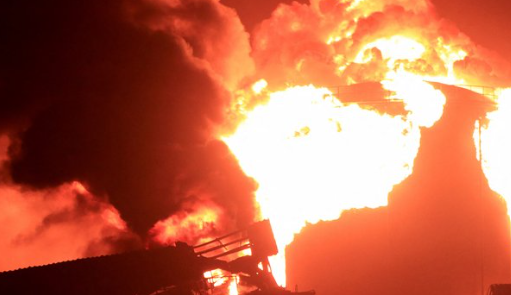For the first time, Israel has struck inside Yemen, following a deadly drone attack launched by Houthi rebels on Tel Aviv. Since the October 7 attacks by Hamas on Israel, the Houthis have been targeting shipping in the Red Sea in solidarity with Gaza. These direct attacks between the Israeli military and an Iranian-backed rebel group risk creating a new front in a conflict that already threatens to spill over into the region.
Soon after the Israeli attack, the Houthis said they launched a fresh barrage of missiles towards Israel, promising a response that will be “huge and great.”
Israeli Jets Bomb Sites in Yemen Linked to Iran-Backed Houthi Militia | NYT https://t.co/SdjwwCakQS The strike was in retaliation for a drone attack launched from Yemen a day earlier, which evaded Israel’s defenses and hit a building in Tel Aviv, killing one person. pic.twitter.com/uS4r3YlT64
— Venik (@venik44) July 21, 2024
The Houthis are an Iran-backed Islamist group based in Yemen, known as Ansar Allah (Supporters of God). They have been a significant force in Yemen’s civil war, consolidating control over most of northern Yemen and seeking an agreement with Saudi Arabia to end the conflict. The Houthis have targeted Red Sea shipping as retaliation for Israel’s military actions in Gaza. The US and UK have responded to these attacks by striking Houthi targets in Yemen, although Israel had not been involved in these responses until now.
A tipping point for Israel came on Friday when a Houthi drone attack on Tel Aviv killed one Israeli citizen and injured several others. The Houthis claimed responsibility for the attack, with spokesperson Yahya Sare’e stating that the operation used a new drone capable of bypassing interception systems. Israel’s IDF spokesman Daniel Hagari identified the drone as an Iranian-made Samad-3 model.
Israel’s response came a day later with an airstrike on Yemen’s port of Hodeidah, marking the first time Israel has struck Yemen. The attack killed at least six people and injured scores more. Houthi spokesperson Mohammed Abdulsalam condemned the strike, claiming it targeted civilian facilities and a power station.
Israel Strikes Yemen — ‘Houthi Terrorist Regime‘ — for First Time https://t.co/AvWJnhXa4Y via @BreitbartNews
— Keith Long (@r_keith_long) July 21, 2024
Prime Minister Benjamin Netanyahu stated that the port was used by Iran to supply weapons to the Houthis. He emphasized that Israel’s operation demonstrated its capability to respond to threats far from its borders.
The conflict shows no signs of de-escalating. Houthi army spokesperson Yehya Saree stated that the Houthis are prepared for a prolonged conflict with Israel. On Sunday, Israeli military intercepted a missile from Yemen, while the Houthis claimed to have launched multiple ballistic missiles.
The war in Gaza has also heightened tensions between Israel and Hezbollah, another Iranian-backed militant group. Both groups have been exchanging fire since October 8. While the Houthis pose a fresh challenge for Israel, Hezbollah remains a more significant threat due to its proximity and extensive arsenal.
Saudi urges ‘maximum restraint’ after Israel strikes Yemen https://t.co/yS8vmPNbsI
— Frankie Crisostomo (@FrancCrist) July 21, 2024
Yoel Guzansky, a senior fellow at the Tel Aviv-based Institute for National Security Studies, believes Israel’s recent actions are intended to signal to the US and the international community that the situation requires attention and action. Increased hostilities between Israel and Iran’s proxies could destabilize the region further and push the two nations closer to open warfare.
Key Points:
- Israel conducted its first-ever airstrike inside Yemen, targeting the Hodeidah port in response to a deadly Houthi drone attack on Tel Aviv.
- The Houthis, an Iran-backed group involved in Yemen’s civil war, have been targeting Red Sea shipping and Israeli civilians in retaliation for Israel’s actions in Gaza.
- The Israeli strike killed at least six people and targeted facilities used to import weapons from Iran to the Houthis.
- Prime Minister Netanyahu emphasized that the operation was a demonstration of Israel’s capacity to respond to distant threats.
- The conflict has heightened regional tensions, with increased hostilities between Israel, the Houthis, and Hezbollah, raising concerns about broader destabilization.
Susan Guglielmo – Reprinted with permission of Whatfinger News



